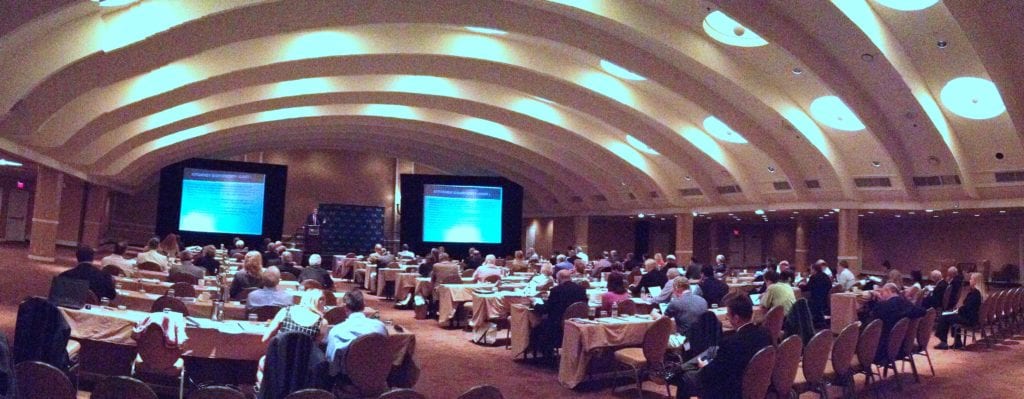Tim Corcoran ably summarized the feelings of many consultants and professional speakers with a recent blog post which includes this excerpt:
“Major conferences often have a bias for in-house professionals as presenters. “We must be protected from vendors trying to sell us something,” they say, thereby eliminating input and advice from experts who may have seen 75 implementations of a specific tool or process, in lieu of an in-house practitioner who has deployed the tool only once, in only one organization, and is leveraging the speaking opportunity to find a better paying role”.
That’s what many us have been saying privately, but were reluctant to proclaim publicly for fear of retribution.
Remembering that one time many years ago when (1) a desperate or inexperienced consultant pitched his/her product or service a bit too hard, or (2) heard the “A friend of a friend swears she was at a conference once where …”urban legend, many conference organizers created a firm no-consultants rule, or simply proudly prefer in-house folks over “vendors.”
A presumption of guilt is draped over all consultants.
I understand the issue, but in practice in-house marketers typically have more general workloads; they handle a wider array of functions. This means that they have less experience than a consultant who specializes in a specific thing.
For example, I recently sat through law firm branding and website-development presentations where a law firm’s in-house marketing director was offering simply awful advice to the rapt crowd.
Yes, that was her true-life experience. But she’d only done that thing one time, at her current firm. And at that firm, what she had done had worked. But she couldn’t possibly understand how lucky she’d gotten, or how badly her strategy would have played at other law or accounting firms. Or the efficiencies or opportunities that she missed along the way, lessons that only come with greater experience and repetition.

I had completed the exact project she was discussing over 100 times for 100 different firms — and you can’t help but learn some things along the way. The nuanced lessons I’d learned over the years would have benefited the audience in their efforts to bring the initiative to their firms. But the conference organizer had a general distrust of consultants, and rejected my proposal to speak on that same topic. And so the audience received her less-valuable (and potentially risky) opinion, taking copious notes.
I wanted to jump up and say, “Wait! That won’t work!”
But of course, I didn’t. That would have been rude.
Instead of a bias against consultants, perhaps simply punish the violators?
Make the No-Selling Rule clear in the Call for Presenters (although frankly that should be unnecessary), and punish violators by refusing to invite them to speak at future programs. In the hundreds of conference presentations I’ve attended, I’ve only seen a tiny handful of violations. Most experienced speakers know better.
Those of us who speak regularly know that pitching violates the implicit pact between speaker and audience, selling from the podium doesn’t work. Audience members are loathe to buy from a presenter who turned a costly educational session into a tacky infomercial.
Perhaps it’s time to rethink the suspicion directed toward hard-working law firm consultants?




 />i
/>i

